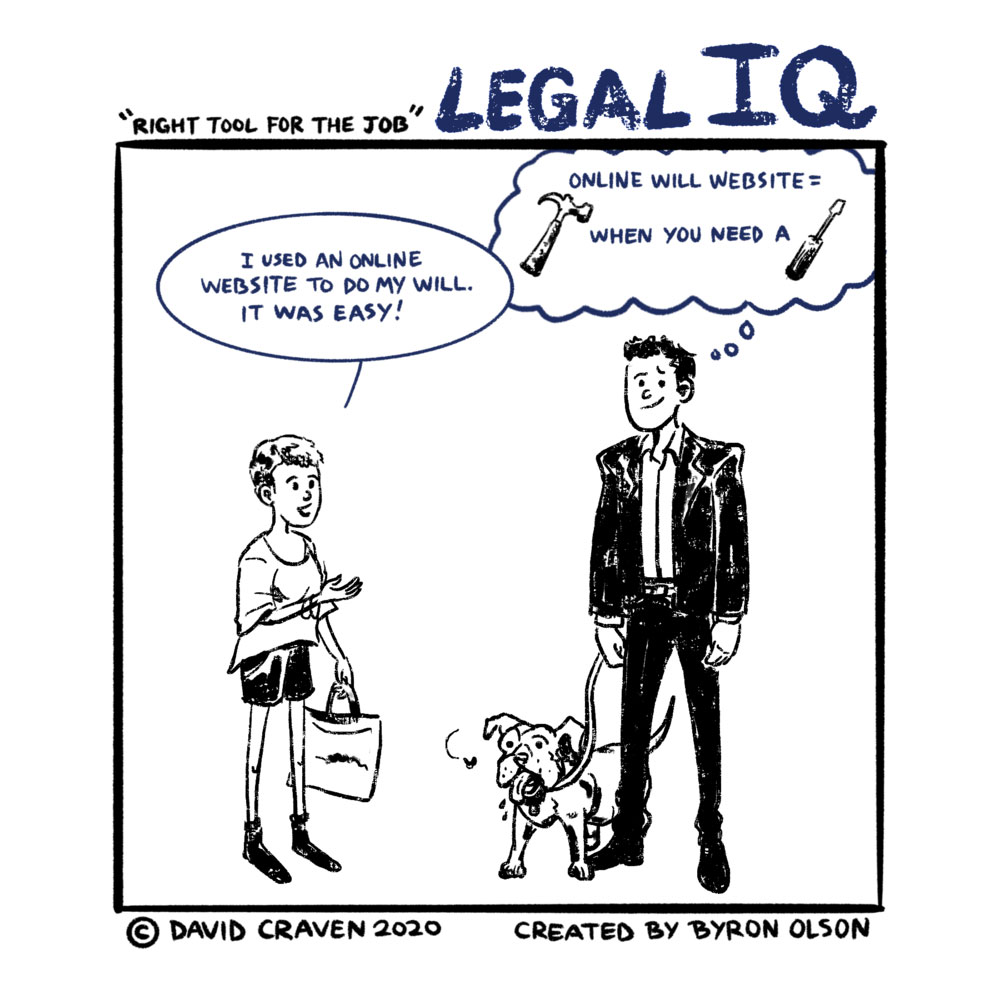When it comes to crafting your legal documents, such as Wills, LLC formations, etc., there are endless options. Should you utilize an online tool, such as Legal Zoom, or seek a legal professional to produce your legal documents? In this article, PLDO Trust & Estate Partner David Craven explains the differences and important considerations:
Online tools have boiler plate templates that are unable to take into account specific situations and often have incorrect or contradictory clauses. They also often do not have proper conflict resolution information built in, which can result in messy court battles. And a computer algorithm cannot understand, nor consider, your specific wishes for yourself and your loved ones.
Essentially, online tools are not able to process the information in a personal, sophisticated fashion, like a professional can, and you end up with a document which likely does not meet your needs. It will leave out important information that may result in your loved ones not being cared for the way you intended.
People often forget that lawyers go to years of schooling, then do “on the job training”, plus continuing legal education, before they ever produce something a client is going to get. It’s hard to believe that “fill in the blanks” can listen, understand your goals, and produce a document that achieves your objectives.
Simply put, if you just want to fill in the blanks on a document, use an online tool. But if you want guidance on how to create a plan that will ensure you and your loved ones are cared for in the event of death or disability, it’s best to go to a lawyer.
Let’s equate it to an English class and two different assignments. With the first assignment you’re allowed to write a creative story. You have so many options open to you to write the story you want and are not confined by any prescribed bounds. The second assignment would be an exercise where the storyline was already typed out for you and you were only able to fill in some of the adjectives. Easier in some regard; certainly quicker. But you might not like the storyline at all, and you are stuck with that. That, in a nutshell, is the difference between using a lawyer and an online tool.
Here’s another example (pet owners, take note!):
You have a dog – let’s call him “Frankie” – that you consider to be a beloved member of your family. In your Will, you want to leave Frankie to your friend, “Bob,” along with money to care for your dog.
The online tool might allow you to fill out the name of the person who will care for your dog and an amount of money that would enable the person to do so. A boiler plate / ”fill in the blank” Will might say “I leave my dog Frankie to my friend Bob. I also leave Bob $10,000.00 for the care of Frankie.”
But what if Frankie is no longer around when you die and you have a new dog? Well, the Will doesn’t address that and there would be an issue.
Also, what if Bob gets Frankie, and the $10,000, and decides to immediately turn Frankie over to the animal shelter and keep the $10,000? The online Will can’t address that either.
A lawyer can talk through these options with you, understand that you want your friend to get any pets you own, and ensure documents are prepared so that any money you leave is only used for the purposes you intend.
This is just one example, but there are so many more issues involving family homes, second marriages (providing for the spouse from your current marriage and children from former marriage), and guardianship for children. These all require personal conversations to understand your goals; something an online program cannot help you with. Often issues with incomplete or contradicting information can be so large, that the entire document is completely ineffective. Essentially, you paid for nothing.
Another way to think of legal work is like home renovations projects. You want to choose the right tool for the job; otherwise, it’s impossible to get the job done correctly. If you grab whatever tool you have closest to you, to try and force the result, you often end up making a mess that, in the long run, might result in a bigger and more costly headache.
For important legal documents, most times, a lawyer is the right choice over trusting your fate with an online tool. If you have questions pertaining Wills or other legal documents, please contact David P. Craven, Esquire at 401-824-5100 or email dcraven@pldolaw.com.


